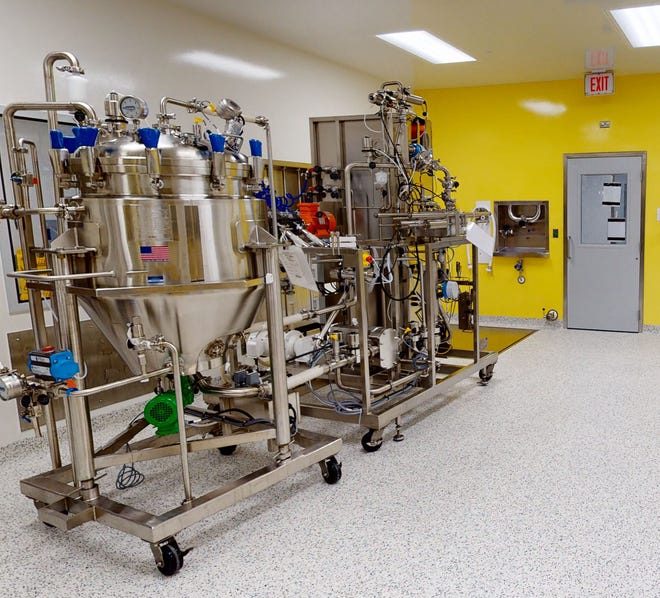As the nation revs up its vaccination programs, the increase could help relieve bottlenecks caused by vaccine shortages.
 “We call this ‘Project Light Speed,’ and it’s called that for a reason,” said Chaz Calitri, Pfizer’s vice president for operations for sterile injectables, who runs the company’s plant in Kalamazoo, Michigan. “Just in the last month we’ve doubled output.”
“We call this ‘Project Light Speed,’ and it’s called that for a reason,” said Chaz Calitri, Pfizer’s vice president for operations for sterile injectables, who runs the company’s plant in Kalamazoo, Michigan. “Just in the last month we’ve doubled output.”
The increased speed and capacity is not unexpected, said Robert Van Exan, president of Immunization Policy and Knowledge Translation, a vaccine production consulting firm.
“Nobody’s ever produced mRNA vaccines at this scale, so you can bet your bottom dollar the manufacturers are learning as they go. I bet you every day they run into some vaccine challenge and every day they solve it, and that goes into their playbook,” he said.
Pfizer’s COVID-19 vaccine is made at threePfizer plants: starting in Chesterfield, Missouri, moving to Andover, Massachusetts, and finishing in Kalamazoo, Michigan. As of Saturday, about 20.6 million doses of the Pfizer vaccine had been administered nationwide.
Along with improving speed, Pfizer also is increasing output by adding manufacturing lines in all three plants.
As the vaccine effort continues, more efficiencies are expected.
 “There are going to be profound shifts in the way we do business,” Calitri said of what he’s experienced since his boss first called him on March 20, 2020 and said the Kalamazoo plant would play a key role in the rapid production of the vaccine.
“There are going to be profound shifts in the way we do business,” Calitri said of what he’s experienced since his boss first called him on March 20, 2020 and said the Kalamazoo plant would play a key role in the rapid production of the vaccine.
“We just demonstrated to ourselves that we can go from a phone call in March to having now delivered 50 to 60 million doses.”

